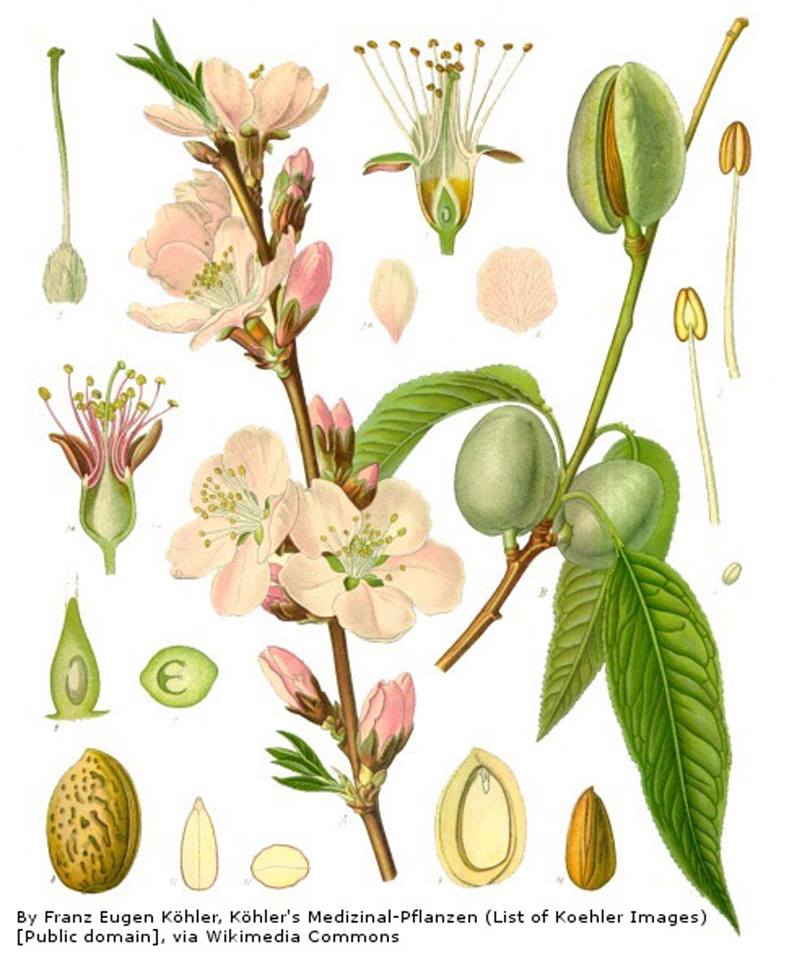Day7 of #AdventBotany – did the almond tree grow from Agdistis’ severed genitals or was it created to honour Phyllis’ wait for Demophon? Almond, Prunus dulcis – a tree that provides both sweet and bitter nuts.

Maria Christodoulou, a member of this research group, was brought up with one of the Greek legends about this tree “Described as crazy by locals in the Mediterranean the almond tree, Prunus dulcis (Mill.) D.A.Webb, is certainly one of the eccentrics in the region. Its early flowering times, sometimes as early as February, have made it a symbol of hope and regeneration. Being a flowering time pioneer however has its costs, with the first flowers often destroyed by frost. Considered one of the first nuts to be domesticated, the almond tree has a most definite dark side. The seed in its wild state produces sufficient levels of amygdalin which are transformed into cyanide when eaten. The domestication selection process, aided by the fact that it is relatively easy to grow from seed, is dated back to the Bronze Age. A low level presence of amygdalin still remains today, but it is mostly found in bitter almonds grown almost exclusively for medicinal reasons. The uniqueness of the almond always captured the imagination of the locals with various customs and superstitions focusing on almonds – such as presenting newlyweds with sugar coated almonds. It is unsurprising therefore that the ancient Greeks had one of the most tragic love stories created to explain the flowering of the tree, the story of Phyllis and Demophon. According to legend Phyllis, who spent years waiting for her fiancé to return from Athens, died of sorrow without seeing him again. The gods, to honour her, planted a tree that never flowered. After many years, Demophon returned and searched for her only to find a dead tree. Overwhelmed by grief he embraced the tree and suddenly, in the middle of February, it flowered.”
For me the big use of almonds is in the cakes and mince pies as well as a range of marzipan sweets and marzipan stuffed dates. The smell of marzipan is caused by Benzaldehyde, a breakdown product of amygdalin.

